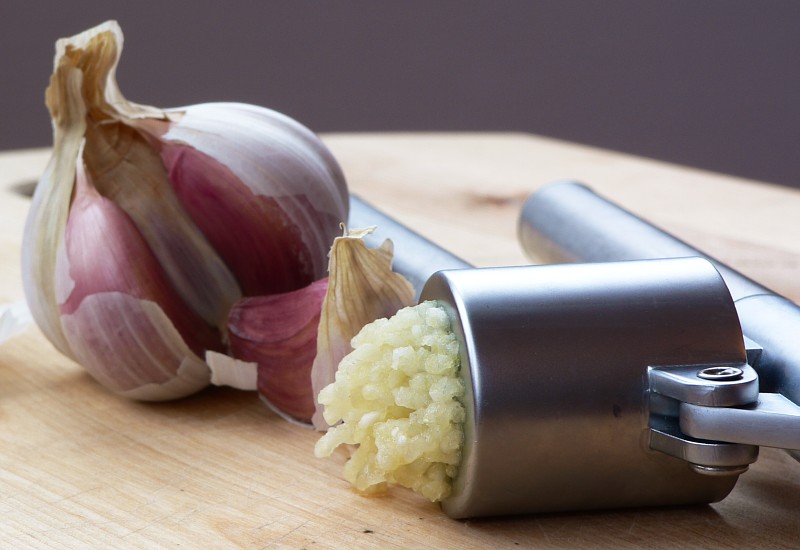I know it's not Mother's Day, but I received these two fabulous Mother's Day church talks after Mother's Day this year, and I couldn't wait a whole year to share them. Three of us Marshall sisters are due to have a baby within a month, so I figured that was enough excuse to re-visit Mother's Day, since mothering is so much on our minds!
The first is a talk given by my maternal great-grandmother, for whom I am named. It was probably given when she was in her 70's (when she learned to type). She was such a lovely, thoughtful and articulate woman. I hope you enjoy her talk.
A Mother’s Thoughts on Mother’s Day Morning
By, Beatrice Cannon Evans
Dearest Children,
With what swelling pride we see you
sing and speak your parts this sunny Sabbath morning. Pride, not in our dessert of this, your too generous,
unstinted praise, but in your accomplishments. It is the breath of life you give back to us.
Yes, this is a proud and peaceful
moment to pause and glance backward along the gentle slopes of life, to breathe
freely and feel deeply of life, to see beyond the surface of our daily tasks,
and know if our course has been upward or become wedged in the deepened ruts of
the lowland of the valley. May the
moment prove one of peace, each one a higher mile stone through the years!
Having a part in bringing you into
the world has been the greatest achievement and adventure of our lives; and if
you continue to progress in intelligence, high accomplishment, and noble
living, you will be the glory of our lives forever and forever.
 |
| Grandma Bea reading to my beautiful little mother |
And what, dear children, do you
really think of us?
Are we merely the policemen of your
lives?
Have we forgotten what it
means to be young?
Has the
fierceness of our young desire grown dim?
The all possessing importance of the moment no longer vivid in our
hearts?
God forbid!
Do we touch you only in terms of,
“Johnny wash your hands!”
“Do hang
up your clothes.”
“Wash the
dishes, Mary.”
Did we always so
cruelly tuck your childish body in “when grown up people’s feet were marching
past you in the street?”
*
Do you know about the task of
disciplining and training you for success and happiness was born to us with
you, and if we do not succeed in this, success in any thing else is poor in
deed. And some day you will speak
with pride when you proclaim, “My mother didn’t leave me to spend the evenings
in the streets,” or, “My mother had us entertain our friends at home,” etc.
etc.
But maybe what you do not know so
well is, that bearing, rearing, and living with and for you, is the strongest
disciplining force in our own lives.
For you we get up in the morning when we would like to lie in bed;
through you we out-grow many an evening dissipation. For you we have zest in working on when we are weary; your
need in us calls forth hidden reserves and brings into play our latent
powers. Because of you our hearts
are forward looking even when age is creeping upon us. Life sparkles with your laughter. Though we are linked to the song and
sorrow of all the world, our hopes shall not be buried with us.
 |
| Grandma Bea, posing with her five boys (my grandpa's bottom-left. Isn't he cute?). |
And if we profit fully by life’s
experience with you, our great love for you shall be but the bud which shall
blossom into a greater love. Daily
we are learning more what Jesus said, “A little child shall lead them.”
And let us Mothers in the flesh
remind ourselves lest we in the fullness of our lives forget that we are not
the only Mothers in the world.
Great and high tribute should this day be paid to mother hearted women
everywhere whose sympathies and helping hands daily touch the lives of our’s
and other people’s children. The
pages of history are gloriously maned with the names of childless mothers whose
vision, love and untiring energies have broadened and made more straight the
way of life for us and our children.
And to three such whose lives have
intimately touched mine, I would this day pay silent homage.
My own Mother always said that we
owed no debt to her; the joy of our infant smiles had more than compensated her
for the cares of young motherhood.
And so truly so with me my babies sunny ways dispelled even memory or
thought of sacrifice.
But, dearest children, still you
owe a great debt, which must be paid in full to the oncoming generation. It must be paid with interest and only
in the unalterable coin of the realm.
You must weld yourself to the great chain of humanity and pass it on in
sound minds, vigorous bodies, and pass an untarnished but added unto, the pure
gold of the knowledge and tradition of the implacable treasure, which is
trusted to your keeping.
 |
| Grandma with her grandchildren, at right holding a baby |
But, since I have been a mother, I
find Mother’s Day, with all its lovely homage, the most trying day of the
year. All the things a mother
should and could be are arrayed as an accusing criterion before me in those
piercing words of guileless praise.
My hasty and impatient words sound like thunder in my ears. And I see my baby’s smile each morning
born anew. Yes my children forgive
me always, even “seven times seven.”
I find myself in trial, and I am weighed in the balance and found wanting.
The greatest need of the world
today is better mothers. If such
moments will help to make us so, all hail and long life to Mother’s Day!
This next talk was given by my lovely sister, Rachel. She has always been an amazing fount of wisdom. I always learn something from her when we have a chance to talk.
Motherhood and the Savior
By Rachel Vella Galli Fleming
Happy Mother’s day! I have the pleasure today of talking about motherhood as it relates to the
Savior, who is our greatest example in all things including maternal love and sacrifice.
Anne Campbell wrote: “You are the trip I did not take; You are the pearls I cannot buy; You
are my blue Italian lake; You are my piece of foreign sky. You are my Honolulu moon, you
are the book I did not write, you are my heart's unuttered tune, you are a candle in my night.”
Without knowing the title of the poem, “To my child,” it is not difficult to guess who the author
is referring to, for whom she sacrifices trips and pearls. These sacrifices are not uncommon
to mothers, although individual sacrifices can vary. Some women give up a career or world
traveling to stay home with their children as my mother did for many years. Certainly, not every
woman is blessed with the time I’ve had to enjoy foreign skies and Italian lakes before becoming
a mother. Other mothers must work to provide for their families, and some are single mothers,
which I imagine to be the most difficult job of all.
 |
| Rachel and her sweet baby Aaron |
As the oldest child in my family, I have always been cognizant of many of the sacrifices my
mother made for me. I knew that even without studying much for it, she excelled on the LSAT
and could have done well in law school. She is an excellent writer, and as a nearly empty nester,
is finally finding the time to complete Helga’s autobiography. For many years, I was for my
mother “the book she did not write.”
Even though I knew many of the sacrifices my mother made for me, it was only when I became
a mother that I understood more fully. During one challenging period with my baby Aaron, I
recently pondered, “There is nothing he could do to repay me, regardless of anything he may do
for me in the future. The many sleepless nights, the financial sacrifice to stay home and provide
the material things he needs, and the care I give him every hour would forever be beyond his
reach to repay. And yet these are sacrifices that Micah and I are happy to make. What do I hope
for then, as a mother that I will receive in return for all I give to Aaron?” I realized that what I
hope for most in return is his happiness. His happiness is my greatest recompense, and more
rewarding than any pearls I could otherwise buy or return trips to Italian lakes.
These thoughts turned my mind to the Savior’s sacrifice for us. Like our mothers, He gave us
new life, and we could never present Him with the same gift or afford the infinite price tag on
His infinite atonement which made eternal life possible. We cannot imagine His sufferings,
which He tells us were “sore—how sore you know not, how exquisite you know not, yea, how
hard to bear you know not.” And for His sufferings, the only recompense He hopes for is our
happiness, and His only request is that we repent and remain obedient to the laws of heaven
because that is the only way for us to receive a fullness of joy.
When I view commandments or difficult experiences through the lens of motherhood, I am able
to feel the Savior’s love even through challenging things. Aaron doesn’t always appreciate
elements of the care I give him. When he cries as I change his diaper or take something sharp
away from him, I constantly explain to him, although he won’t fully understand for a long time,
that my love and desire for his happiness are always my only motive. I love him enough to
take away something he wants or subject him to temporary discomfort in order to provide him
with longer term comfort, happiness, and opportunities to learn. As he grows older, I will ask
him to always look both ways before he crosses the street and give other rules for his safety,
development, and happiness that he might not always welcome.
While studying the scriptures last year, I began to notice further parallels between the Savior’s
love and sacrifice for us and motherhood. I recognized that the Lord often uses the sacrifice
unique to mothers, that of carrying a baby to term and giving birth, as a metaphor for the
atonement. Three words in particular: pain, labor, and travail, are sometimes used as a trio
together, or in other places two out of three of the words, to describe birthing pains. They are
used as a metaphor for the Savior laboring for our salvation or for His servants aiding Him in
this effort. Here is one example in 2 Nephi which refers to the Jews bringing salvation to the
Gentiles through the Bible: “Yea, what do the Gentiles mean? Do they remember the travails,
and the labors, and the pains of the Jews, and their diligence unto me, in bringing forth salvation
unto the Gentiles?”
The word “bear” is also commonly used in the birth metaphor for the labor of salvation. Isaiah
53: Surely he hath borne our griefs, and carried our sorrows:… He shall see the travail of his
soul and shall be satisfied: by his knowledge shall my righteous servant justify many; for he shall
bear their iniquities.”
The book Beloved Bridegroom recently enhanced my understanding of this birth metaphor. It
notes that the Jews believed it would take “Chevlai shel Mashiach” or the “Birth pangs of the
Messiah” to bring to pass redemption. Quote, “Just as birth is preceded and accompanied by
birth pangs, there are likewise “pangs of Messiah” in the generation in which the Son of David
will appear.”
In John 16:21, the Savior gives this metaphor to His disciples: “A awoman when she is in
travail hath sorrow, because her hour is come: but as soon as she is delivered of the child, she
remembereth no more the anguish, for joy that a man is born into the world.” Christ is referring
to the sorrow the disciples will feel at the time of His death, which was soon to come, compared
with the joy they will feel when He is reunited with them. He also remarks a few verses later
that the hour had come for His atonement, which harkens back to the hour come for a woman in
labor. And the Savior later confirms that like that woman whose joy was full after a man was
born into the world, His joy was full when His atonement was complete and all men could be
spiritually reborn through Him.
Like a mother’s sacrifice to bear a child through pregnancy and give birth is only the beginning
of the love she will demonstrate to her child throughout her life, so the Savior’s love continues
to bless us throughout eternity. The Lord demonstrates His watchful care through additional
maternal metaphors, such as the comparison of Himself to a mother hen, who desires to gather
her chickens, the House of Israel, under her wings.
Isaiah 46 provides further insight into the enduring maternal like love of the Savior: ¶Hearken
unto me, O house of Jacob, and all the aremnant of the house of Israel, which are borne by me
from the belly, which are carried from the womb: 4 And even to your aold age I am he; and even
to bhoar hairs (grey hairs) will I carry you: I have made, and I will bear; even I will ccarry, and
will ddeliver you.”
As I know the Lord will always carry me, even as an adult, my own mother continues to
demonstrate this love. I recently unpacked a box of kitchen utensils, and there was a sticky
note inside taped to some wrapped knives that says, “SHARP KNIVES (in caps!). P.s. Hi
from Mom.” I’m sorry to admit that I don’t remember my mother helping me pack my kitchen
utensils when we moved from Indiana two years ago, but her love continues with me, making
sure that I don’t get cut by future knives.
I felt other effects of my mother’s long distance love while on my mission. I credit my lack
of homesickness to my mother’s poetic weekly letters describing the flowers growing in the
garden, what the family enjoyed for Sunday dinner, the activities of my sisters, and thoughts
she was pondering about. Home seemed so close that I never missed it! One area, however,
was particularly challenging for me on my mission. I remember sitting in a sacrament meeting
when I was new in the branch feeling overwhelmed and wondering how I could dredge up the
enthusiasm to get to know the members after church. Suddenly I felt a deep warmth run through
me, bringing renewed hope and the strength to do difficult things. I recognized this as a love
letter relayed through the Spirit from my mother, who had been praying in particular that I might
feel her love. This brought to my mind a prompting my mother had mentioned to me earlier;
when she was feeling sad about my absence: she said excitedly, “The Spirit told me you’re
coming home!” I knew that no matter what challenges I would face on my mission, that I would
be given the strength to overcome them, and yes, one day I would go home.
I imagined that Ammon, the arm slaying son of Mosiah, felt similar comfort as he confronted the
men who had lead away the king’s sheep. The scriptures attribute his success in cutting off arms
not to his immense physical strength or even his righteousness, but to the prayers of his father.
Alma 17 reports that the sheep thieves did not fear Ammon, “for they supposed that one of their
men could slay him according to their pleasure, for they knew not that the Lord had promised
Mosiah that he would adeliver his sons out of their hands.” The love and prayers of Ammon’s
father directed through the spirit made him invincible, as my mother’s love blessed and protected
me.
The Savior’s promise to us is the same. We leave His physical presence for a brief time,
analogous to a mission, during which He grants us grace to overcome any obstacle we face
including death and sin. Then His love brings us home to Him. The Spirit whispers to us here as
it did to my mother, “There is no need to fear. Abide now in my love, and in a short time, you’re
coming home!”
My mother’s love teaches me to rely on the promise “Even to my old age and grey hairs it is the
Savior who carries me; it is He who will deliver me back home with Him.” I’m grateful for my
mother and her love that points me to Christ. I endeavor to be that kind of a mother, and hope
that through my love, Aaron will come to know his Savior and rely on His love until the time he
returns home to be encircled in the Savior’s arms.



























